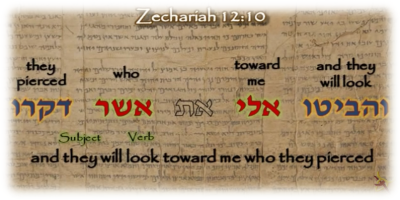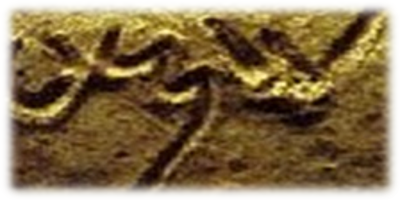Hear, O Israel: The LORD our God is one LORD: And you shall love the LORD your God with all your heart, and with all your soul, and with all your might. (RSV, Deuteronomy 6:4,5)
Hear
The Hebrew verb שמע (Sh.M.Ah, Strong's #8085) means "to hear" but with the Hebraic idea "to pay attention to what is being spoken and act upon it." When Israel "hears" the directions of God, they agree to act upon them (they obey his words). When God "hears" the pleas of Israel in bondage in Egypt, he acts upon them (he rescues Israel).
One
The use of the word "one" in this verse is commonly interpreted to mean that there is only "one" God. However, from a Hebraic perspective, the Hebrew word אחד (ehhad, Strong's #259) can mean a "unit" within a unity. This verse is stating that YHWH is in unity with himself. A good example of this is the pillar of cloud by day and a pillar of fire by night. A cloud and fire are opposites—one provides coolness and shade and the other heat and light. Yet, they work together to preserve the people during the day and the night.
Love
Love, the Hebrew verb אהב (A.H.B, Strong's #157) is not an emotion: it is an action. The context of this word in the text indicates that we are to "love" God with our actions, not with our emotions.
Heart
The heart, לבב (levav, Strong's #3824) in Hebrew, is the thoughts of the mind, not an emotion as the word is generally understood in western minds. In this passage, we are informed how to "love" Yahweh—by keeping all of our thoughts focused on him.
Soul
The Hebrew word נפש (nephesh, Strong's #5315) is literally the whole of the person. First we are told to love Yahweh with our minds, now with all of our bodies.
Might
The Hebrew word used here is מאד (me'od, Strong's #3966) and is a very interesting word, especially in the way that it is used in this context. This word is used throughout the Hebrew text as an adverb, intensifying a verb, and is usually translated as very, greatly, or much. This is the only time this word appears as a noun and is best translated as "muchness." This idea of muchness is expanding on the previous two ways we are to love Yahweh, first with our mind, then with our body, and now with everything we have.
A Re-Translation
Now that we have examined each word in this passage, to uncover their original meanings in the Hebrew culture, let’s translate it with a more Hebraic flavor.
Israel, pay careful attention and respond: Yahweh works in unity with himself: and you shall act upon your love to YHWH with your thoughts and mind, with your entire body and with everything that you possess.
The phrase "heart, mind and soul," as it is translated in the RSV, is generally interpreted to mean that we are to love YHWH with "three" things, but the reality is that this phrase is a form of poetry that is using three synonyms to show that our love for YHWH is to be all encompassing, beginning with our thoughts, then our bodies, then everything we possess.
The Masoretic Text
In modern day Hebrew Bibles, this passage is written as follows.
שמע ישראל יהוה אלהינו יהוה אחד
Notice that the ayin (ע), the last letter in the first word is written oversized, as is the dalet, the last letter in the last word. When these two letters are placed together, they form the word עד (eyd, Strong's #5707) meaning "witness." In Judaism, the sh’ma (the name given to this verse as it is the first word in this verse) is Israel’s witness, their statement of faith if you will.
However, the oversizing of these letters is not found in any ancient scroll such as found in the Dead Sea Caves. The oversizing first appears in the Masoretic Hebrew texts from 1,000 A.D. Whether the Masorites added them or not we don't know, in fact the origins of these oversized letters are a mystery.
Even though this oversizing does not appear to have been in the original texts, it is still an excellent teaching tools.

Like what you’re discovering? Continue the journey from Bible reader to translator.
|

A word-by-word examination of the syntax of each verse and the morphology of each Hebrew word in Genesis chapter 2.
 | Zechariah 12:10 | "Pierced him" or "Pierced me?" (Video) Jewish and Christian translations of Zechariah 12:10 are very different. In order to determine the correct translation we will need to take a close look at the structure of the verse. |




